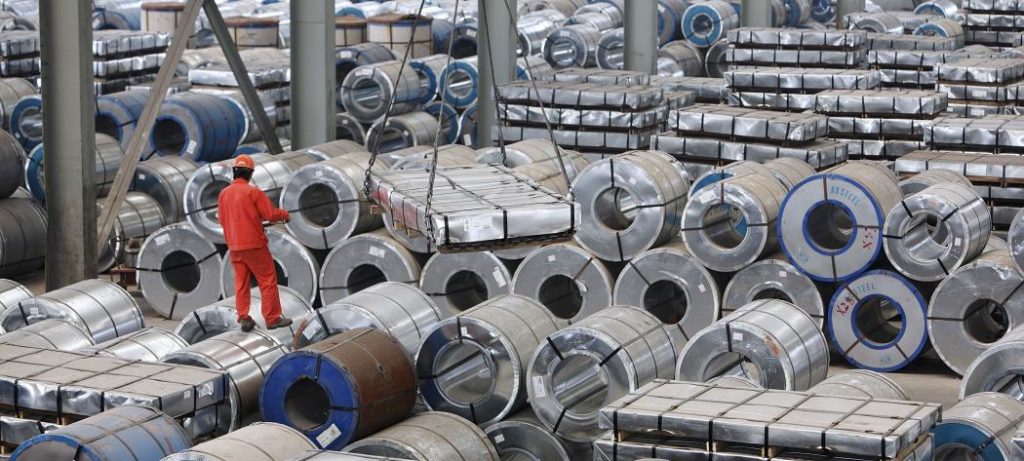In April 2016, Donald Trump stood in front of supporters in Pittsburgh and declared he would bring the country’s steel jobs back. On Thursday, he returns to western Pennsylvania as a president yet to deliver on that promise.
[ Scott N. Paul | Jan. 17, 2018 | New York Times]
While America will never again see mills like those that dotted the river valleys of Ohio, Pennsylvania and West Virginia 50 years ago, President Trump now has a chance to help stabilize a reeling steel industry and revive some of the employment it once offered.
The wheels are in motion. Three months into his presidency, Mr. Trump invoked a rarely used authority — Section 232 of the Trade Expansion Act of 1962, which allows the president, after a review, to block imports that threaten national security — and promised decisive action in favor of the domestic steel industry by the end of June.
The summer instead passed without progress on the prerequisite review from the Commerce Department. Finally, with a deadline looming, late last week the Commerce Department announced it had completed its investigation and sent recommendations to the White House. The administration must announce a decision based on the report’s findings within 90 days.
With the report in hand, Mr. Trump has broad license to apply tariffs, quotas or both to steel imports. And he can do it safely: While there has been speculation about potential retaliation against the United States if it raises import restrictions, an exception in the General Agreement on Tariffs and Trade permits them for security purposes.
Mr. Trump should make use of his authority in this case. Even in this digital age, steel undergirds our military power, not to mention critical infrastructure. Tanks, aircraft carriers and the energy grid all rely on high-strength, lightweight steel. That steel has been made in America for generations.
The security of our own steel industry, though, has been in doubt for a long time. Domestic steel production peaked in 1973. The industry is now operating at less than three-fourths of its capacity. Thousands of steelworkers have been laid off since 2015, and those still working know their jobs are under constant threat. Only one American company makes essential electrical steel, and only one other supplies the type of steel needed to make Virginia-class submarines, the generation of attack submarines that are expected to be in production until 2043.
The main culprit? In this case, Mr. Trump is right to blame China, which has added 550 million metric tons of steel capacity — more than six times total American production — since 2007, when Beijing first acknowledged it was making more steel than it could use. A significant amount of that steel has flooded global markets. Today, most of the world’s largest steel companies are state-owned Chinese firms. Whether or not you believe Beijing’s intent was to disrupt our own industry, that has certainly been the effect.
While Mr. Trump deserves credit for opening the national security review of steel imports, he has made plenty of mistakes regarding trade along the way. Initiating the 232 investigation and then sitting on it for months was feckless; American steel imports spiked by 15.5 percent in 2017 as foreign steel makers rushed in products ahead of tariffs that have yet to materialize.
An executive order that promised American steel would be used for energy pipeline projects was toothless, as most of the purchasing had already taken place. Meanwhile, Mr. Trump is burning through what remains of his political capital, necessary for a realistic shot at getting an infrastructure package through Congress. Handled correctly, either would have been a boon to domestic steel and manufacturing in general.
Most disappointing, Mr. Trump has met with China’s president, Xi Jinping, twice without extracting a meaningful policy concession on that country’s blatant mercantilism. Our annual trade deficit with China, which Mr. Trump cites as an indicator of our economic health, is poised to reach a record high when final figures are released next month.
A meaningful 232 action wouldn’t resolve these failings, but it would certainly be welcomed by the industry he promised to save.













